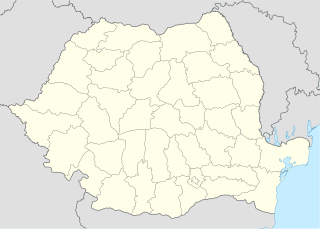| Pousa, son of Sólyom | |
|---|---|
| Voivode of Transylvania | |
| Reign | 1227 1235–1241 |
| Predecessor | Paul, son of Peter (1st term) Andrew, son of Serafin (2nd term) |
| Successor | Julius Rátót (1st term) Lawrence (2nd term) |
| Died | 31 March 1241 Burzenland |
| Father | Sólyom |
Pousa, son of Sólyom (Hungarian : Sólyom fia Pósa; died 31 March 1241) was a Hungarian nobleman, who served as voivode of Transylvania twice, in 1227 and 1235 to 1241. [1] [2]

Hungarian is a Finno-Ugric language spoken in Hungary and parts of several neighbouring countries. It is the official language of Hungary and one of the 24 official languages of the European Union. Outside Hungary it is also spoken by communities of Hungarians in the countries that today make up Slovakia, western Ukraine (Subcarpathia), central and western Romania (Transylvania), northern Serbia (Vojvodina), northern Croatia and northern Slovenia. It is also spoken by Hungarian diaspora communities worldwide, especially in North America and Israel. Like Finnish and Estonian, Hungarian belongs to the Uralic language family. With 13 million speakers, it is the family's largest member by number of speakers.

The Voivode of Transylvania was the highest-ranking official in Transylvania within the Kingdom of Hungary from the 12th century to the 16th century. Appointed by the monarchs, the voivodes – themselves also the heads or ispáns of Fehér County – were the superiors of the ispáns of all the other counties in the province.
Pousa served as ispán (comes) of Vas County in 1225. [3] During the reign of Andrew II, he was a faithful supporter of crown prince Béla, who held the title of Duke of Transylvania after 1226, following the agreement between the king and his son after a series of conflicts for the throne. Sometime Duke Béla acted independently of his father, as it is demonstrated by his grant of tax exemption to Transylvanian knights in 1231 and by his donation of lands situated in Wallachia in 1233. [4] Pousa served as master of the treasury (camerarius) for Béla in 1225. [5]
The ispán or count was the leader of a castle district in the Kingdom of Hungary from the early 11th century. Most of them were also heads of the basic administrative units of the kingdom, called counties, and from the 13th century the latter function became dominant. The ispáns were appointed and dismissed by either the monarchs or a high-ranking royal official responsible for the administration of a larger territorial unit within the kingdom. They fulfilled administrative, judicial and military functions in one or more counties.

Vas was an administrative county (comitatus) of the Kingdom of Hungary. Its territory is now in western Hungary, eastern Austria and eastern Slovenia (Prekmurje). The capital of the county was Szombathely.

Andrew II, also known as Andrew of Jerusalem, was King of Hungary and Croatia between 1205 and 1235. He ruled the Principality of Halych from 1188 until 1189/1190, and again between 1208/1209 and 1210. He was the younger son of Béla III of Hungary, who entrusted him with the administration of the newly conquered Principality of Halych in 1188. Andrew's rule was unpopular, and the boyars expelled him. Béla III willed property and money to Andrew, obliging him to lead a crusade to the Holy Land. Instead, Andrew forced his elder brother, King Emeric of Hungary, to cede Croatia and Dalmatia as an appanage to him in 1197. The following year, Andrew occupied Hum.
He was appointed voivode of Transylvania in 1227. [2] According to László Markó, he held the office between 1226 and 1229, however existing charters only prove the term of voivodeship in 1227. [6] He served as master of the horse for duke Béla between 1229 and 1233. [7]

The Master of the horse was one of the high officials of the royal household in the Kingdom of Hungary. Masters of the Horse were included among the "true barons" of the realm from around 1220.
When Béla ascended the throne in 1235, Pousa was appointed voivode of Transylvania for the second time. [2] In 1241, Transylvania suffered during the Mongol invasion of Europe. Güyük Khan invaded the province from the Oituz Pass in March. Voivode Pousa fought them with his royal army near Burzenland (Hungarian : Barcaság), where he fell in battle on 31 March 1241. [6] [8] The Mongols continued their campaign toward the interior of the Kingdom of Hungary.

The Mongol invasion of Europe in the 13th century was the conquest of Europe by the Mongol Empire, by way of the destruction of East Slavic principalities, such as Kiev and Vladimir. The Mongol invasions also occurred in Central Europe, which led to warfare among fragmented Poland, such as the Battle of Legnica and in the Battle of Mohi in the Kingdom of Hungary.

Güyük was the third Great Khan of the Mongol Empire, the eldest son of Ögedei Khan and a grandson of Genghis Khan. He reigned from 1246 to 1248.

Oituz is a commune in Bacău County, Romania. It is composed of six villages: Călcâi (Zöldlonka), Ferestrău-Oituz (Fűrészfalva), Hârja (Herzsa), Marginea, Oituz and Poiana Sărată (Sósmező).






